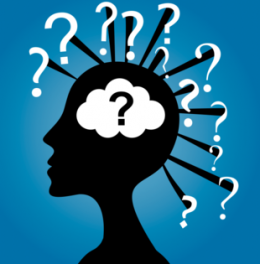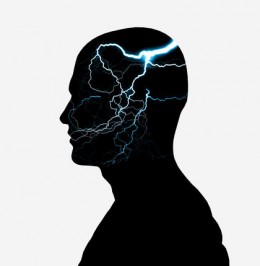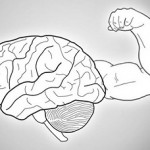One third of adults say they feel angry almost every day. Three-quarters feel irritated several times each week. Some are worried they are suffering from some sort of anger disorder.
Typically, psychiatrists explain that anger is a “normal” emotional state; one that everyone experiences and which, in itself, is not evidence that there’s anything wrong with you. This emotional state, they say, is an automatic response to the experience of being mistreated, wronged, offended or unfairly denied. Fact is, we’ve all been there.
It’s when anger exceeds certain boundaries that people start talking about anger disorders. There are usually signs that the feelings you’re experiencing might have gone beyond “normal” anger and become something that might need some attention. Those signs can be anything from:
• Anger that’s out of proportion to the situation (You find yourself extremely angry about something that’s a relatively common or not particularly serious occurrence)
• Anger that’s unusually persistent (you’re angry most of the time, or you are angry regularly about a particular event or circumstance for weeks or months)
• Anger that’s frequent and leads to serious consequences (Your anger land you in trouble with the law, problems with relationships or employment, harming yourself or others or causing property damage, or caught up in physical confrontations with others)
• Anger that’s unusually intense (You find yourself completely enraged, out of control, unable to think clearly, engaging in dangerous, violent or illegal behavior)
Are Anger Disorders Even Real?
 When it comes to science, I have found no instruments that can asses above mentioned mental states as a clinical disorder. There is currently little agreement among mental health practitioners as to what constitutes an anger problem. There is not even a commonly accepted definition of anger itself. So, is it possible that an anger disorder is just a myth? It depends.
When it comes to science, I have found no instruments that can asses above mentioned mental states as a clinical disorder. There is currently little agreement among mental health practitioners as to what constitutes an anger problem. There is not even a commonly accepted definition of anger itself. So, is it possible that an anger disorder is just a myth? It depends.
It seems that this is an area that psychologists and neuro-scientists have not properly explored yet. According to a statement by a cognitive researcher, noted on CSMMH website, “The cognitive theory of anger consists of a constellation of core beliefs, automatic interpretations, and feelings that comprise the manifestation of anger experiences. Although the descriptive element of the cognitive theory of anger is well formulated, the causal element of the theory that relates specific disorder components to specific treatment components is less compelling.”
Difference Between Normal Anger and Anger Disorder?
Generally, the literature states that “normal” anger is connected to a specific action as its source (or to the planning or contemplation of such action), while an anger disorder (pathological anger) is mostly directed at oneself or even lacks direction altogether. Also, the “usual” anger is generally considered to be as a transitory state, generally manifesting in frustration, irritation and annoyance at identifiable targets – specific events or people.
One can argue that it is not truly a disorder but more of a habitual, exaggerated response, witnessed in the majority of healthy population. However, if one’s anger stems from physical “malfunctions” that have to do with things like brain injury or personality disorder and seems to be acute and permanent, then it can be considered as a real and valid disorder.
Personality Disorder and Brain Injury are a Factor
Most folks suffering from a personality disorder are notoriously prone to anger. Their anger is usually sudden, raging, and without an apparent reason and directed either inwardly or to the world in general. Its a process that is taking place in their brain and overriding their ability to comprehend the situation and clearly reason through the emotions. Their mental filter is dysfunctional, filtering out all good qualities and focusing on and dwelling in the negative. Many suffer from this state day and night, sometimes able to suppress it but with violent eruptions in the least expected moments.
Additionally, doctors have long known that some types of head injury lead to outbursts of aggression. But there is a study that actually links the uncontrollable anger to a problem in the way the brain functions. Scientists measured brain function in psychiatric patients suffering from a condition called Intermittent Explosive Disorder and came to conclusion that the condition is linked to malfunctioning of part of the brain’s circuitry, possibly caused by an imbalance of certain neurotransmitters.
Two Schools of Thought for Anger Related Conditions
Whether anger disorders are real or a myth depends which school of thought you are comfortable with. One would say an imbalance of brain chemicals, such as serotonin, and the brain’s internal wiring is influenced purely by the genetic and environmental factors; all is hard wired and set into place making an individual a victim of one’s faith. In this case, one might argue that all anger disorders are real. Especially if the brain has no chance to re-wire because of a serious injury.
Second, however, would be to take into account new discoveries in neuro-science and ancient wisdom traditions that suggest we play a conscious and unconscious role in the wiring of our brain via our thoughts and that the brain’s plasticity would allow an individual to change by means of meditation and certain cognitive therapy. In this case, one may argue an anger disorder is simply a very strong mental illusion, controlling one’s actions but ultimately being just a mental state, no different than any other.
Anger Disorder Symptoms

There is a number of symptoms that might be useful in determining whether you or someone you know has an anger disorder:
• Are you angry for no apparent reason? If you become angry suddenly without any provocation, or during a time in which others might have no emotion or positive emotions, then you might want to seek help to determine if you have an anger disorder.
• Is your anger disproportionate to the situation? Some disorders are also characterized by instances of explosive anger which are disproportionate to the particular situation. Often trivial or minor things can trigger rage in those that suffer from an anger related condition, such as chasing someone down for cutting you off on the road or yelling at someone in a store for skipping ahead in line.
• Are you ever surprised by how angry you sometimes become? Have you become angry, and then realized afterward that you scared even yourself by just how enraged you actually were? Most who are affected by it will become so agitated that they do things they wouldn’t normally ever dream of doing, like harming someone else or saying things they don’t mean.
• Do people you know tend to avoid you? As a result of an anger, you may have had unpleasant encounters with loved ones or friends, and now notice that they avoid you altogether. They may think that your next episode will cause them personal harm or will be even worse than the last. The unpredictable nature of an anger disorder causes those you know to stray away from interacting with you. In order to prevent the ruin of further relationships, it’s best to consult a professional to help with anger disorder symptoms.
• Does the recollection of past events trigger an anger episode? Do you feel extreme anger by events that happened years ago when you recall them, or do trivial things of the past irritate you to the point of explosive anger episodes?If so, then you might consider seeking the help of a medical professional, in order to determine if you have an anger disorder. Most of us have mild feelings when we reflect upon the past, however, it should not trigger anger that should have dissipated long ago.
Five Main Anger Disorders To Be Aware Of
 These are “official” diagnoses of anger-related disorders as defined by the Diagnostic and Statistical Manual of Mental Disorders (DSM IV):
These are “official” diagnoses of anger-related disorders as defined by the Diagnostic and Statistical Manual of Mental Disorders (DSM IV):
• Intermittent Explosive Disorder. Characterized by extreme expressions of anger, often to the point of violence, that are disproportionate to the situation at hand.
• Adjustment Disorder with Disturbance of Conduct. This disorder is marked by responses to stress that infringe upon the rights of others or involve noncompliance with societal norms, in such areas as truancy, fighting, vandalism, reckless driving, or disregard for legal responsibilities.
• Oppositional Defiant Disorder. Diagnosed in children, this is an ongoing pattern of anger-guided disobedience, and hostile, defiant behavior toward authority figures, often accompanied by very angry or stubborn feelings, which are beyond the bounds of normal childhood behavior.
• Conduct Disorder. Also diagnosed in children, as well as adolescents, this disorder is characterized by a repetitive and persistent pattern of behavior in which the basic rights of others or major age-appropriate norms are violated.
And there’s a newly described disorder, which some researchers are hoping will be included in the new edition of the DSM, called Post-Traumatic Embitterment Disorder. In this disorder a person will experience, in the aftermath of a traumatic event (sometimes life-threatening or horrific, and at other times extremely stressful without being life-threatening), a cauldron of seething bitterness and resentment which builds up on a daily basis over a long period of time. These feelings cause great impairment in most areas of life.
Some other disorders which are marked by strong feelings but are not strictly related to anger also include: Psychotic Disorder, Bipolar Disorder, Antisocial Personality Disorder, Borderline Personality Disorder, Paranoid Personality Disorder, Narcissistic Personality Disorder, and Attention-Deficit/Hyperactivity Disorder.
Therapy for Anger Related Disorders
When choosing a treatment for an anger disorder it is important to remember that everyone’s mind is different and one glove will not fit all.
Perhaps the most important step to take is to confirm whether you truly suffer from any disorder at all. You must then consult a very qualified physician or psychiatrist on what strategy will suite you best.
It is quite possible that given your present condition you may need certain pharmaceuticals but there is no good reason not try the therapies listed below first. Any psychiatrist or therapist who recommends drugs from “hello” is either lazy, incompetent and/or serving the agenda of pharmaceutical companies.
Your next step should be determining what should be the target of therapy: ruminative thoughts, mental distortions, specific behavior, physical arousal, etc. And finally which approach is most likely to be effective given your personality. Howard Kassinove, Ph.D. from Hofstra University recommends looking into the following treatment options:
Cognitive Therapies
 1. Cognitive Behavior Therapy
1. Cognitive Behavior Therapy
Also referred to as CBT – Cognitive Behavior Therapy seeks to assist a person to overcome difficulties by identifying and changing dysfunctional patterns of reasoning, behavior, and emotional response. Credited to psychiatrist Aaron Beck (1976), CBT involves helping a person to develop awareness of one’s limiting beliefs, identifying distorted thinking, and changing the way one relates to others.
Dr. Beck proposed that during upsetting events people tend to react with a stream of unplanned, knee jerk thoughts or actions. Some of these thoughts are deemed appropriate to the situation at hand but some are evidently very illogical, distorted and overblown.
In CBT, a patient builds a bridge of trust with a therapist who further guides the patient through a complicated mental landscape in evaluating one’s thinking, reasoning and perception, identifying and further replacing the mental distortions of various situations in daily life. If successful, one rewires to see the world through a different lens and is able to function better in daily life.
2. Self-Instructional Training
Self-Instructional Training (SIT), is a form of CBT which examines how one’s anger-related verbal statements influences the subject’s behavior. This form of therapy aims to provide a person control over their behavior through guided self talk that gradually becomes covert and self generated.
Most quick to anger individuals posses a cognitive deficits in problem solving or verbal mediation contributing to the many problems at hand. With CBT one learns to notice and to re-write one’s internal dialogue about oneself further giving rise to a more balanced appraisal of oneself in difficult situations.
3. Rational-Emotive Behavior Therapy
Rational-Emotive Behavior Therapy (REBT) – holds a fundamental premise that a human, does not merely get upset by an unfortunate adversity per se, but also through how he constructs his views of reality through language, beliefs, meanings and philosophies about the world, himself and others.
Developed by Albert Ellis in 1950, REBT is based on the so called A-B-C model, where emotional disturbance – Point C, is the result of irrational thinking at Point B about external events in Point A, but NOT the events themselves. In other words, most angry people blame external events for their inner turmoil, but do not realize that it is their illogical thinking and skewed appraisal of (otherwise neutral) events that leads to inner conflict and not the other way around.
Through REBT, one learns to to understand his role in every situation, notice and evaluate philosophical, illogical, unrealistic and self-defeating interpretations and assumptions. Afterwards one begins to D, dispute, refute, challenge and question those assumptions and distinguish them from unhealthy constructs. As a result of healthy debate with a therapist a person builds a more realistic and self-helping constructs that further guide his behavior to a healthier emotional functioning.
Relaxation Based Therapies
It doesn’t take a scientist to notice that angry behavior is often accompanied by high levels of stress and physiological arousal. Naturally, it is not surprising that simple relaxation techniques can be very effective of reducing any symptoms of anger and anxiety disorders.
Most of these therapies teach clients to reduce physiological arousal such as muscle tension, heart rate, and hyperventilation accompanied by the negative emotions. The goal is to employ these relaxation techniques as early as possible during the onset of an emotional event so that the corresponding behavior doesn’t spiral out of control.
A variety of techniques that serve as part of the therapy include: progressive muscle relaxation, guided self talk or imagery, autogenic training, biofeedback, and of course various forms of meditation. One of the easiest and very effective techniques to master is Anger Mentor’s BREATHE Method, where one learns how to Breathe, Reverse, Explore, Apply, Turn, Humor, and Enjoy elements.
Systematic Desensitization
Originally credited to South African psychiatrist Wolpe, systematic desensitization therapy has a simple premise – experience small amounts of anger and frustration in a controlled environment and learn to cope with it. Next, gradually turn up the dial on anger arousing scenarios and learn to deal with each and every single one of them.
The way this would play out is when you sit with a qualified therapist and develop a list of anger invoking situations in your life. These would be organized in a way from the smallest reaction like standing in line with an elderly lady in front of you paying with the cashier’s check to a public criticism or humiliation by your boss.
As you imagine each scenario (starting with the least irritating one) you’d learn to take a step back and evaluate the situation prior to reacting to it in a habitual way. You would also learn a relaxation technique (such as progressive muscle relaxation) to put you back in a more relaxed state of mind to cope with the problem at hand. You’d practice applying these techniques with every scenario on your list multiple times till you get in a habit of reacting to stress in a more functional way. Once the technique is learned, you could effectively do this by yourself at home.
Both, cognitive as well as relaxation therapies have been around for a few decades and have their place in managing various mental maladies. The key is to consult with a qualified professional which option will suit you best and give it a try.
If you suspect you are suffering from an anger disorder, make sure to consult with a qualified psychiatrist, a therapist or a good life coach in your area. They should be able to tell you the direction you need to take.


 7 Anger Management Tips Every Teenager Should Carry in the Pocket
7 Anger Management Tips Every Teenager Should Carry in the Pocket Ways to Reset Your HPA Axis & Dramatically Improve Emotional Health
Ways to Reset Your HPA Axis & Dramatically Improve Emotional Health Curious Facts About What Science Says About Your Brain and Anger
Curious Facts About What Science Says About Your Brain and Anger
Hello, I’ve been trying to download the 7 secrets of anger management booklet but haven’t been successful. Can you please email it to me. Thanks for the great articles and helpful research and insights. It’s been very helpful.